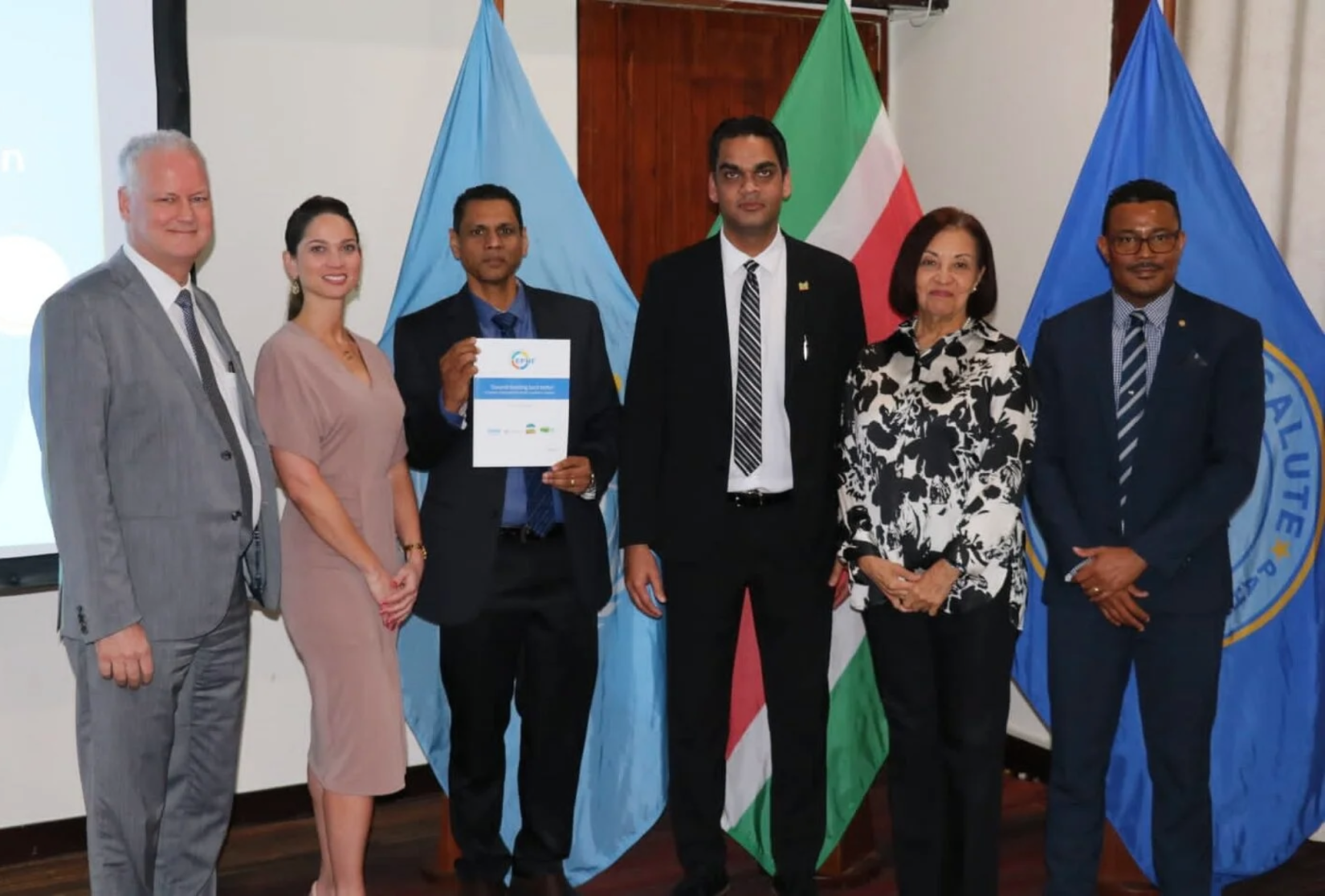PAHO presents the findings of the Essential Public Health Functions (EPHF) for Suriname
13 March 2023

Suriname, March 09, 2023 (PAHO) – The Pan American Health Organization/World Health Organization (PAHO/WHO) hosted a stakeholders’ meeting in Paramaribo, Suriname to present the results of the evaluation of the Essential Public Health Functions (EPHF) for the country. The presentation brought together key stakeholders from the health sector to discuss the findings and to identify areas for improvement. The EPHF framework serves as a guide for countries to ensure that they have the necessary systems in place to prevent, detect, and respond to public health threats. By evaluating and strengthening these functions, Suriname can better protect the health of its citizens and improve its overall public health capacity.
The EPHF Framework in Suriname
The PAHO/WHO has a renewed framework for the Essential Public Health Functions (EPHF) to guide health authorities in strengthening their policies and addressing public health challenges in the region. Suriname participated in the EPHF evaluation and strengthening exercise as part of its commitment to universal health and became the first country in the Caribbean Region to complete this exercise. A multidisciplinary team developed an action plan to strengthen the country's public health infrastructure based on the gaps identified in the EPHF assessment. Addressing these gaps will also support universal access to health and universal health coverage, the Sustainable Development Goals, and the PAHO/WHO Strategy for Building Resilient Health Systems and Post COVID-19 Pandemic Recovery to Sustain and Protect Public Health Gains.
The meeting was opened with a speech by the PAHO/WHO Representative Dr. Lilian Vernon-Reneau who stated that:
“The Assessment in Suriname was done in close collaboration with the Ministry of Health, as the owner along with key actors in the health sector. This is a process facilitated and supported by PAHO, but it is the Ministry’s of Health process to gauge the institutional capacities in performing these essential public health functions. It is not an examination of the system rather it allows us to build on already existing strong areas and to focus our attention to strengthen areas that may require such action.”
Dr. Amar Ramadhin, Minister of Health Suriname in addressing the participants mentioned that;
“Suriname is pleased to be part of the Essential Public Health Functions (EPHF) assessment. Equally, Suriname is very pleased to be the first country in the Caribbean Region to have completed this exercise. The exercise started in 2021 during the COVID-19 pandemic and was completed in August 2022. I wish to thank everyone who have participated and supported this exercise and I look forward to the discussions on how we can work together to support health system resilience and broader health goals including equity and efficiency.”
Ms. Rachel Jarboe, a representative of PAHO/WHO WDC, provided a brief review of the EPHF evaluation framework and process. The EPHF framework is a tool developed by PAHO/WHO to guide countries in evaluating and strengthening their public health systems. The framework is organized into 11 essential public health functions, which are grouped into three categories: health assessment and surveillance, health promotion, and disease prevention and control.
Following the brief review, Ms. Joanna Baank, PAHO/WHO Consultant for the EPHF Assessment presented the results of the Phase 1 situation analysis and institutional mapping, which aimed to assess the current state of Suriname's public health infrastructure. She also presented phase 2 measurement of institutional capacities, which evaluated the country's capacity to implement the EPHF framework.
The moderator for the day, Dr. Rosmond Adams, Advisor for Health Systems and Services at PAHO/WHO Suriname mentioned: "PAHO is pleased to support Suriname in the assessment of the essential public health functions and the development of the action plan to strengthen these functions. Within out framework of technical cooperation, we will work collaboratively in health system strengthening.”
Dr. Adams also presented the results of Phase 3, which involved a gap analysis to identify areas where Suriname's public health system falls short of meeting the requirements of the EPHF framework. Based on the findings, an Action Plan was developed to address these gaps and improve the country's public health infrastructure.
The Action Plan includes several key initiatives, such as strengthening laboratory capacity, surveillance systems, and disease prevention and control measures. It also aims to enhance communication and coordination among key stakeholders and to improve human resources for public health.
A key takeaway from one of the health stakeholders Dr. Jerry Tulsi from the Medical Science Institute (Faculty of Medical Sciences) stated that:
“We were already aware that there are gaps in our health care system, but now these gaps have now been identified and well documented, and based on this documentation we can make improvements to our health care systems.”
Dr. Marc Sprenger, Director of the National Recovery Plan at the Ministry of Health, provided an update on the ongoing reform process of Suriname's health sector and how this reform will support the essential public health functions. The health sector reform aims to improve the quality, accessibility, and efficiency of health services in Suriname. It is aligned with the country's National Health Policy and Strategic Plan and is based on a human rights approach to health.

